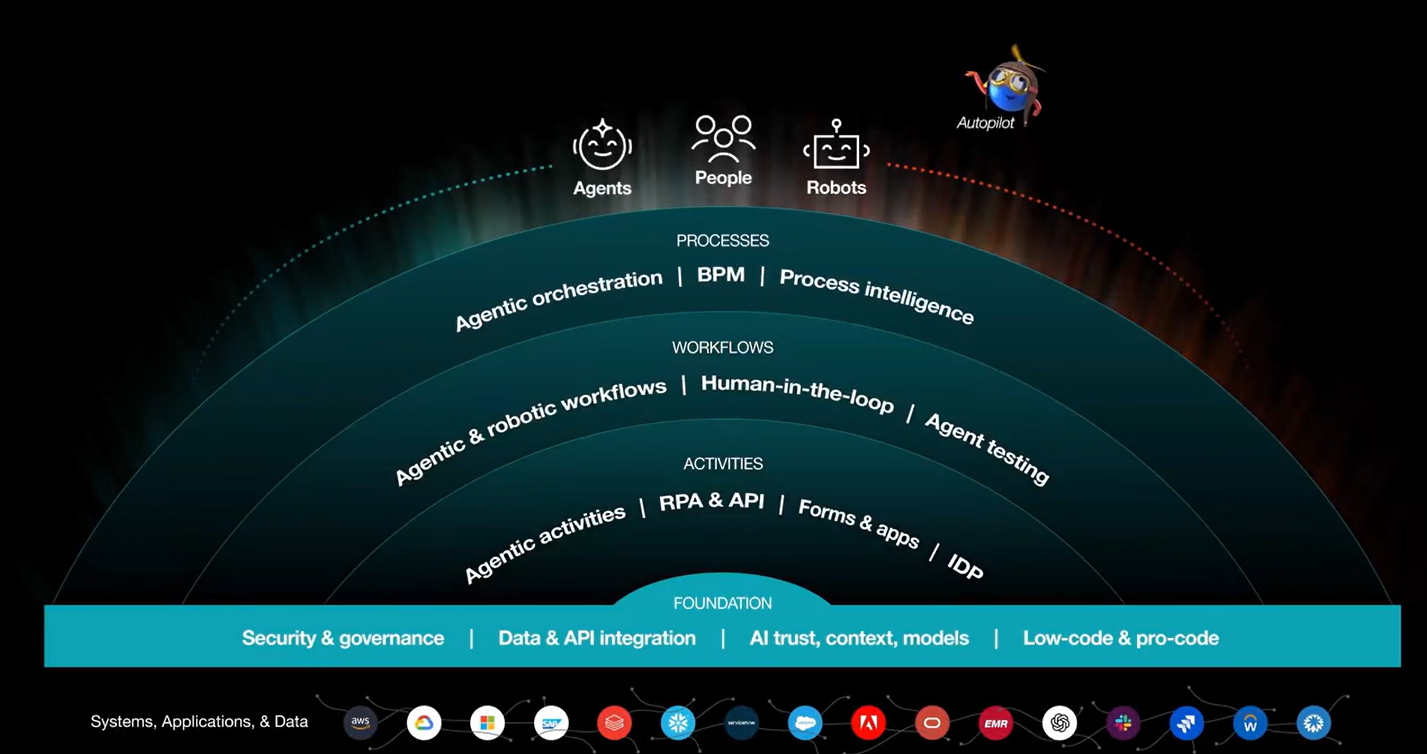UiPath launches next-gen platform: 'Agents think. Robots do. People lead.'
UiPath launched the latest version of platform with a focus on "agentic automation" that encompasses AI agents, but acknowledges that technologies like robotic process automation and even people fit into automated processes.
The next-gen UiPath Platform aims to be an orchestrator of agentic AI much like other vendors, but can also leverage RPA, process mining and other tools. The idea behind the approach has been noted by BT150 members at Constellation Research. These CxOs have noted that in many cases older technologies can be more effective automation tools with better returns.
- Agentic AI: Everything that’s still missing to scale
- BT150 zeitgeist: Agentic AI has to be more than an 'API wearing an agent t-shirt'
- Enterprise AI: Here are the trends to know right now
- AI agents bring consumption models to SaaS: Goldilocks or headache?
- Agentic AI: Three themes to watch for 2025
According to UiPath, managing reliable AI agents, robots and people will be critical to enterprises. The company said UiPath Platform combines "decades of leadership in automation with a new, agentic architecture that is purpose-built for business-critical workflows."
The UiPath Platform launch also nods to observers who have argued that agentic AI is interesting, but really a tool that is in the larger automation mix.

CEO Daniel Dines said the launch of the next-gen UiPath Platform is the company's second act. "We’ve built a platform that unifies AI, RPA, and human decision making so companies can deliver smarter, more resilient workflows without added complexity. As models and chips commoditize, the value of AI moves up the stack to orchestration and intelligence," said Dines, who added that enterprises realize there are three actors delivering a process--robots, agents and people.
UiPath Platform is adding the following:
- UiPath Maestro, an orchestration layer that automates, models and optimizes business processes with process intelligence and KPI monitoring.
- A controlled agency model that provides guardrails for AI agents via governance, real-time vulnerability assessments and data access controls.
- Tools for developers to build automation with low code to full code.
- Integration with third party agent frameworks such as LangChain, Anthropic and Microsoft. UiPath supports Model Context Protocol (MCP) and Google Cloud's Agent2Agent (A2A).
In a blog post, Dines was realistic about agentic AI. He said:
"I don't remember the last time so many people were so energized about a technology that could substantially change the way we work—enter agentic AI. In part, this is due to people using LLMs on a daily basis, hence assuming that AI models will be able to autonomously execute all the tasks we want them to soon enough.
The reality is that enterprises have yet to go past PoCs, and AI adoption is present in the automation of isolated tasks. That is because enterprise workflows have become more complex, with the average large company using over 175 different applications and systems. A business process has deterministic and non-deterministic workflows, which require different models in order to successfully automate them."
UiPath's next-gen platform was private preview since January and has so far seen thousands of autonomous agents created, 450 partners and hundreds of customer use cases identified and created.
- The Future of Agentic AI: Get Ready to Build Your Own Agents With Ease
- Cross-Platform Agentic AI: Infosys Topaz
- Constellation ShortListâ„¢ Cross-Platform Agentic AI

